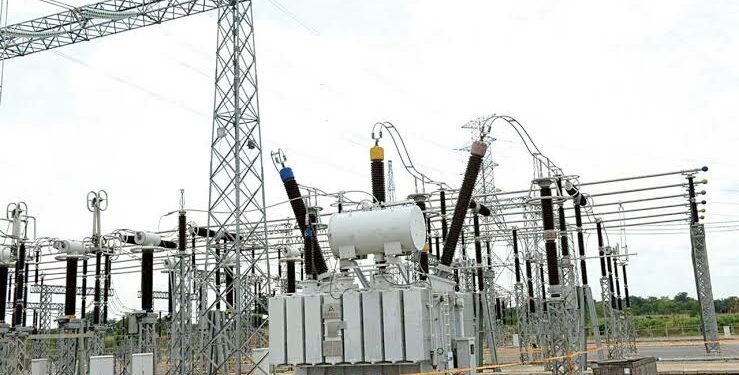The Forum of Commissioners of Power and Energy in Nigeria (FOCPEN) has strongly opposed the proposed amendment to the 2023 Electricity Act, warning that the bill, if passed, would unfairly transfer more than ₦5 trillion in unpaid electricity subsidies to consumers across the country.
Speaking penultimate week, the commissioners criticised the Electricity Act (Amendment) Bill, 2025, currently before the Senate, saying it would reverse recent gains in the decentralisation of Nigeria’s power sector and reintroduce a subsidy regime that states have been actively working to dismantle.
In a statement jointly signed by Prince Eka Williams, Chairman of FOCPEN and Commissioner for Power and Renewable Energy in Cross River State, and Barr. Omale Omale, Secretary of the Forum and Commissioner for Power, Renewable Energy and Transport in Benue State, it stated, “The amendment bill proposes the creation of numerous federal institutions, agencies, and funds whose operational and administrative costs will be passed on directly to electricity consumers.
“This will result in higher tariffs, especially for Band A consumers already dealing with cost pressures. The imposition of new financial burdens is unacceptable, particularly as states are implementing cost-reflective tariffs linked to improved service delivery.”
At the centre of the controversy is the Power Consumer Assistance Fund (PCAF), a mechanism designed to support vulnerable electricity consumers. FOCPEN warned that under the amendment, mandatory contributions from consumers and market participants would be used to finance the Fund—effectively passing the cost of historical subsidies onto today’s consumers, including those in states operating their own cost-reflective market structures.
“By this provision, the amendment bill would transfer over ₦5 trillion in unpaid subsidies to electricity consumers, worsening affordability and fairness in electricity access,” the commissioners said.
A Step Backwards for Sector Reform
The Forum also warned that the amendment could reignite unsustainable subsidy practices just as President Bola Ahmed Tinubu’s administration is working to eliminate them across the energy sector.
“Electricity subsidies consumed ₦1.94 trillion in 2024 alone. With over ₦5 trillion still unpaid, the burden on the power sector is already crippling. The amendment, if passed, will increase pressure on both the federal and state governments and undermine private sector investment,” FOCPEN said.
They added that the proposed changes come too soon after the enactment of the 2023 Electricity Act, which only recently decentralised the sector by empowering states to legislate and regulate power within their jurisdictions.
“This is not the time for an amendment. Many states are in the early stages of implementing their own electricity laws and setting up independent markets. Premature changes risk creating regulatory uncertainty,” the Forum warned.
According to the statement, over 16 states have already begun the process of setting up electricity regulatory commissions and launching state-level power markets.
Speaking on the development, Odion Omonfoma, CEO of New Hampshire Capital Limited, noted that while the PCAF was included in the original Act, the 2025 amendment introduces mandatory customer contributions, raising concerns about transparency and fairness.
“PCAF is in the original Act, but it wasn’t defined how it would work. The amendment now imposes mandatory contributions from electricity consumers, and that means the ₦5 trillion in historical subsidies will be loaded into consumer tariffs,” Omonfoma told Nairametrics.
“₦5 trillion is a massive cost to transfer to consumers, especially when most never directly benefited from the original subsidies.”
The Senate recently passed the Electricity Act (Amendment) Bill, 2025 through second reading. Sponsored by Senator Enyinnaya Abaribe (Abia South), the bill seeks to address regulatory loopholes and introduce new penalties for electricity infrastructure vandalism.
During debate, Abaribe defended the amendment as necessary to rescue Nigeria’s struggling power sector and make laws more enforceable.
“Electricity is an essential service. No one should hold the country to ransom under the guise of a strike. We must remove ambiguities and make the law implementable,” Abaribe said.
The bill also proposes:
Clarifying the transfer of regulatory authority from the Nigerian Electricity Regulatory Commission (NERC) to state regulators;
Operationalising the PCAF;
Strengthening enforcement provisions and institutional oversight.
The 2023 Electricity Act, signed into law by President Tinubu, repealed the Electric Power Sector Reform Act of 2005 and marked a major shift by decentralising electricity regulation to the states.
Since then, numerous states have begun building their own electricity frameworks. Experts and state officials fear that premature amendments could reverse progress and shake investor confidence.
“This bill could send the wrong signal to investors and raise concerns about regulatory stability,” FOCPEN warned.
“The National Assembly should suspend further action on the amendment and allow the 2023 Act to mature and deliver results.”





